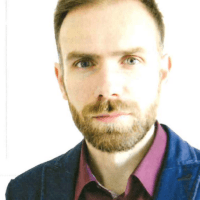The exploration of non-ordinary states of consciousness can have a potentially deep impact on our understanding of ourselves and the world. These states, however, are difficult to bring into a scientific discourse due to issues connected to their properties of reproducibility and ineffability. But these obstacles do not pose impossible challenges. Recently, there has been rapid progress on this front within the field of sleep research. In this article, I present my work on the sleep paralysis state from an interdisciplinary perspective that draws on phenomenology, the humanities, psychology, and neuroscience. I consider different hypotheses about the phenomena typically connected to the state, ranging from depiction as hallucinations (paranoid delusions, a manifestation of social anxiety, projections of our own selves) to considering them as spiritually significant (as in the indigenous Hmong worldview). Based on this, I suggest ways of approaching the topic of non-ordinary states in general, and sleep paralysis in particular, from a neurophenomenological perspective.


